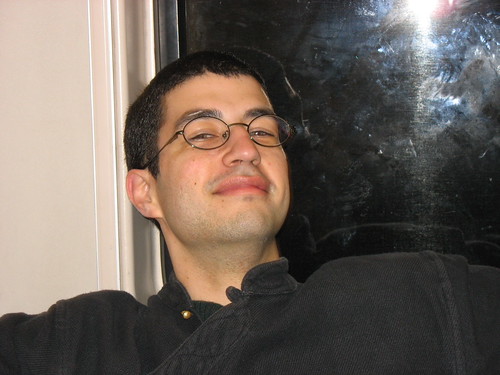A.S. Byatt’s Possession: A Romance.
Begin: 09/18/07
End: 09/21/07
Quality: Ten out of Ten.
Reason: Unread. Random.
Genre: Fiction. Novel. Literary Fiction.
Original Language: English.
Date of Publication: 1990
Fog Index: 10.6/70% are harder
Flesch Index: 63.8/72% are harder
Flesch-Kincaid Index: 8.5/68% are harder
Complex Words: 10%/74% have more.
Number: First.
Synopsis: Roland and Maud are two academics who study the fictional Victorian poets, R.H. Ash and Christabel LaMotte. Roland discovered a half-written letter and they become co-conspirators in discovering the truth. Byatt uses the on-going story as well as letters, journals and poems to tell this multi-layered story.
Thoughts: This novel really wowed me. I tried reading it a few months ago and just couldn’t get into it but this time, I couldn’t put it down. It was so engaging, enthralling and captivating. I believe some of this is due to the fact that I was a literature major and academic stuff just gets me all excited. I was totally mesmerized by all aspects of this novel. I know some people had a problem with say the Victorian love letters or the sheer amount of information but I ate it up and wanted more. And this book really made me think, which always makes me infinitely happy.
I thought that the ending was a little too neat but that was really my only complaint. Love it. Here’s some quotes….
“’I was avoiding the word, because that precisely isn’t the point. We are so knowing. And all we’ve found out, is primitive sympathetic magic. Infantile polymorphous perversity. Everything relates to us and so we’re imprisoned in ourselves- we can’t see things. And we paint everything with this metaphor-‘
‘You are very cross with Leonora.’
‘She’s very good. But I don’t want to see through her eyes. It isn’t a matter of her gender and my gender. I just don’t.’
Maud considered. She said, ‘In every age, there must be truths people can’t fight- whether or not they want to, whether or not they will go on being truths in the future. We live in the truth of what Freud discovered. Whether or not we like it. However we’ve modified it. We aren’t really free to suppose-to imagine-he could possibly have been wrong about human nature. In particulars,, surely-but not on the large plan-‘” (276)
“‘I was thinking last night-about what you said about our generation and sex. We see it everywhere. As you say. We are very knowing. We know all sorts of other things, too.- about how there isn’t a unitary ego-how we’re made up of conflicting, interacting systems of things- and I suppose we believe that? We know we are driven by desire, but we can’t se it as they did, can we? We never say the word Love, do we- we know it’s a suspect ideological construct- especially Romantic Love-so we have to make a real effort of imagination to know what it felt like to be them, believing in these things- Love- themselves- that what they did mattered-‘”
“Things had changed between them nevertheless. They were children of a time and culture that mistrusted love, “in love”, romantic love, romanince in toto, and which nevertheless in revenge, proliferated sexual language, linguistic sexuality, analysis, dissection, deconstruction, exposure. They were theoretically knowing; they knew about phallocracy and penisneid, punctuation, puncturing and penetration, about polymorphous and polysemous perversity, orality, good and bad breasts, clitoral tumescence, vesicle persecution, the fluids, the solids, the metaphors for these, the systems of desire and damage, infantile greed and oppression and transgression, the iconography of the cervix asnd the imagery of the expanding and contracting Body, desired, attacked, consumed, feared.” (458)
“And yet, natures such as Roland’s are at their most alert and heady when reading is violently yet steadily alive. (What an amazing word “heady” is, en passant, suggesting both acute sensuous alertness and its opposite, the pleasure of the brain as opposed to the viscera-though each is implicated in the other, as we know very well, with both, when they are working)”

No comments:
Post a Comment